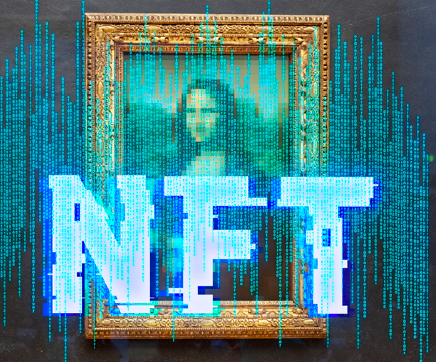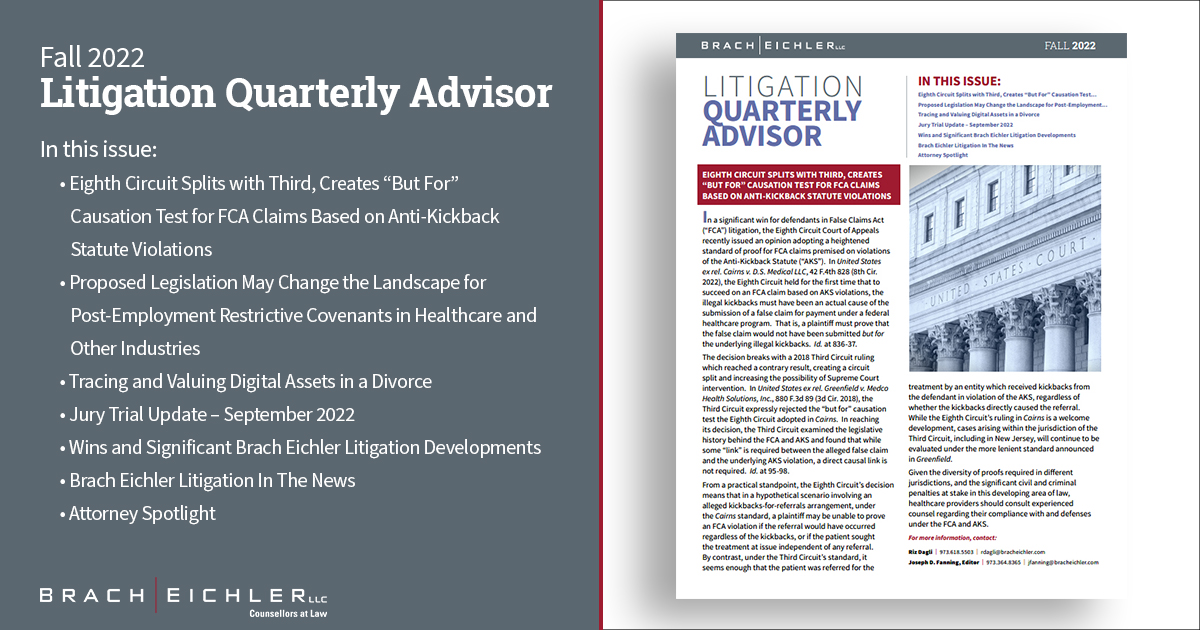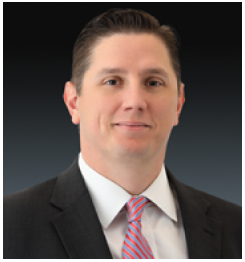

In a significant win for defendants in False Claims Act (“FCA”) litigation, the Eighth Circuit Court of Appeals recently issued an opinion adopting a heightened standard of proof for FCA claims premised on violations of the Anti-Kickback Statute (“AKS”). In United States ex rel. Cairns v. D.S. Medical LLC, 42 F.4th 828 (8th Cir. 2022), the Eighth Circuit held for the first time that to succeed on an FCA claim based on AKS violations, the illegal kickbacks must have been an actual cause of the submission of a false claim for payment under a federal healthcare program. That is, a plaintiff must prove that the false claim would not have been submitted but for the underlying illegal kickbacks. Id. at 836-37.
The decision breaks with a 2018 Third Circuit ruling which reached a contrary result, creating a circuit split and increasing the possibility of Supreme Court intervention. In United States ex rel. Greenfield v. Medco Health Solutions, Inc., 880 F.3d 89 (3d Cir. 2018), the Third Circuit expressly rejected the “but for” causation test the Eighth Circuit adopted in Cairns. In reaching its decision, the Third Circuit examined the legislative history behind the FCA and AKS and found that while some “link” is required between the alleged false claim and the underlying AKS violation, a direct causal link is not required. Id. at 95-98.
From a practical standpoint, the Eighth Circuit’s decision means that in a hypothetical scenario involving an alleged kickbacks-for-referrals arrangement, under the Cairns standard, a plaintiff may be unable to prove an FCA violation if the referral would have occurred regardless of the kickbacks, or if the patient sought the treatment at issue independent of any referral. By contrast, under the Third Circuit’s standard, it seems enough that the patient was referred for the
In This Issue:
Eighth Circuit Splits with Third, Creates “But For” Causation Test…
Proposed Legislation May Change the Landscape for Post-Employment…
Tracing and Valuing Digital Assets in a Divorce
Jury Trial Update – September 2022
Wins and Significant Brach Eichler Litigation Developments
Brach Eichler Litigation In The News
Attorney Spotlight

treatment by an entity which received kickbacks from the defendant in violation of the AKS, regardless of whether the kickbacks directly caused the referral. While the Eighth Circuit’s ruling in Cairns is a welcome development, cases arising within the jurisdiction of the Third Circuit, including in New Jersey, will continue to be evaluated under the more lenient standard announced in Greenfield.
Given the diversity of proofs required in different jurisdictions, and the significant civil and criminal penalties at stake in this developing area of law, healthcare providers should consult experienced counsel regarding their compliance with and defenses under the FCA and AKS.
For more information, contact:
Riz Dagli | 973.618.5503 | rdagli@bracheichler.com
Joseph D. Fanning, Editor | 973.364.8365 | jfanning@bracheichler.com
New Jersey courts have long enforced post-employment restrictive covenants, such as non-compete and non-solicitation agreements, when they “[i] protect the legitimate interests of the employer, [ii] impose no undue hardship on the employee, and [iii] [are] not adverse to the public interest.” Pierson v. Medical Centers PA, 183 N.J. 65, 69 (2005). While New Jersey’s rules concerning post-employment restrictive covenants are currently established by case-law, the State’s Legislature recently proposed Assembly Bill A3715 (the “Bill”), which would codify the above-referenced common law requirements. The Bill also builds on this standard by imposing additional and stricter restrictions on employers wishing to enforce non-compete agreements against former employees.
Stricter Geographic and Temporal Limitations:
For instance, the Bill imposes new restrictions on the geographic scope and duration of a restrictive covenant. The Bill would limit any restrictive covenant to a duration of one year – down from the two year period New Jersey courts often allowed in the past. The Bill would also restrict any geographic limitations to (i) the state of employment and (ii) the areas where the employee provided services or had a material presence.
While both of these changes are substantial, the proposed geographic limitation will likely have a greater impact. The major metropolitan areas of Philadelphia and New York City lie just over New Jersey’s state lines. Yet, the Bill would prohibit any employer from restricting a New Jersey employee from immediately obtaining subsequent employment at a competitor in either of these cities. Consequently, under the Bill, a New Jersey physician could obtain a position with a Philadelphia or New York City practice without violating a restrictive covenant.
Employers Must Pay Former Employees During the Restricted Period. In addition to limiting the duration of restrictive covenants to one year, the Bill disincentivizes lengthy covenants by requiring employers to continue paying most former, covenant-bound employees as if they were still working for the employer. Indeed, the Bill requires an employer seeking to enforce a restrictive covenant to pay a departing employee their full salary for
the period of the restrictive covenant. The Bill further requires an employer to continue making “whatever benefit contributions” are required to maintain the former employee’s “fringe benefits” for the duration of the covenant. The Bill defines “fringe benefits” to include medical insurance, vacation leave and disability insurance.
…the Bill requires an employer seeking to enforce a restrictive covenant to pay a departing employee their full salary for the period of the restrictive covenant.
The Bill requires an employer to make these payments even if the employee commences employment elsewhere. However, employers are not required to continue paying salary and fringe benefits to employees who breach the restrictive covenant. Further, an employer is not required to make any salary or fringe benefit payments under the Bill to an employee who was terminated for “misconduct,” which is defined by the Bill to include “improper, intentional” conduct relating to the employee’s work.
Clients Can Follow a Departing Employee. Additionally, the Bill would allow an employee to continue servicing a former employer’s client so long as that employee did not directly solicit that client. This provision was likely included to protect the public’s ability to choose service providers. For example, it would allow a patient to continue seeking care from a physician even after the physician switched employers.
The Bill’s introduction in the Legislature underscores the scrutiny that the State is placing on restrictive covenants. Employers should review their post-employment restrictive covenant agreements to ensure that they comply with the current legal framework; however, they should be mindful that if the Bill is passed, they will not only face stricter limitations on the scope and duration of their restrictive covenants, but will also face more severe ramifications for violating the Bill’s provisions.
For more information, contact:
Keith Roberts | 973.364.5201 | kroberts@bracheichler.com
Thomas Kamvosoulis | 973.618.5530 | tkamvosoulis@bracheichler.com
Eric J. Boden | 973.403.3101 | eboden@bracheichler.com
A spouse failing to truthfully disclose his or her assets, such as bank accounts, stocks, or even income, is commonplace in the divorce process. To safeguard the other spouse’s right to the hidden asset, there are procedural mechanisms in place to handle such failed disclosure. With the emergence of digital assets, however, the task of tracking and valuing such undisclosed assets can prove difficult. Where a subpoena would likely uncover a centralized bank account that a spouse failed to disclose, a digital asset cannot be requisitioned by traditional means, as there is no central authority regulating the crypto industry.

The advent of digital assets – namely cryptocurrency and, most recently, NFTs (non-fungible tokens) – is essentially a digital reinvention of tangibly valuable assets. Cryptocurrency is a fungible digital asset, akin to the well-known tangible dollar. It is an interchangeable medium of exchange and is defined by the value it represents rather than by its own unique properties. An NFT is a tokenized digital asset that exists on a blockchain and is bought and sold with cryptocurrency. It can be likened to Leonardo Da Vinci’s Mona Lisa in that, like the great artwork, the digital asset is unique and not defined merely by its value. Each NFT has a unique digital signature which makes it impossible for it to be exchanged for or equal to another (just like you cannot swap the Mona Lisa for Andy Warhol’s Campbell’s Soup Cans).
Discovering the digital asset, unfortunately, is not the only difficulty, as the valuation of this type of asset, specifically NFTs, poses significant complications.
Complicating the discovery of digital assets in the divorce process is the fact that their ownership is often shrouded in a layer of anonymity. If a spouse owns such assets, it is likely he or she stores them in a crypto wallet. These wallets typically do not have direct identification information linking their ownership to a specific individual. They also require a private key to access. While NFTs and the cryptocurrency used to purchase them are generally pseudonymously held, the purchase and sale of these digital assets tend to have a more traditional paper trail. Cryptocurrency is often purchased with fiat currency like the U.S. dollar, and many of the crypto exchanges where the cryptocurrency is purchased charge transaction fees. Both the underlying purchase and the associated transaction fees would likely create a record in traditional credit card or bank records, which can be subpoenaed.
The equitable distribution of cryptocurrency, like Bitcoin, is not necessarily an arduous task. Generally, courts divide the cryptocurrency similar to stocks, by utilizing an “in-kind” analysis. Unlike fungible cryptocurrency, however, NFTs cannot be divided due to their unique nature. Instead, divorcing spouses must have the NFT appraised for a buy-out or sell the digital asset and divide the proceeds. The value of an NFT can change by the minute and this market volatility complicates the valuation process tremendously.
As we move rapidly towards an increasingly digital society, we must account for and grapple with the everchanging ways in which people acquire and store their wealth. Understanding the world of digital assets – including how they operate and how to trace and value them – becomes crucial for divorce clients who have accumulated significant digital assets.
For more information, contact:
Carl Sorrano | 973.403.3127 | csoranno@bracheichler.com
Sean Smith | 973.364.5216 | sasmith@bracheichler.com
Kristen E. Marinaccio | 973.403.3138 | kmarinaccio@bracheichler.com

At the beginning of the COVID-19 public health emergency, the New Jersey state judiciary halted in-person jury trials for the safety of the public. Approximately fourteen months later, on May 11, 2021, the New Jersey Supreme Court entered an Order permitting in-person criminal jury trials to resume on June 15, 2021. While in-person criminal trials resumed, civil trials continued to be conducted in a virtual format, unless an assignment judge determined there were compelling circumstances to warrant an in-person trial. Jury selection remained partially virtual in criminal trials and completely virtual for civil jury trials.
On November 18, 2021, the New Jersey Supreme Court entered an Order providing criminal jury trials shall continue to proceed in-person, with jury selection remaining partially virtual. The Court stated it would provide further guidance at a later time about how to conduct civil jury trials. As such, civil jury trials continued to be conducted virtually.
On March 9, 2022, the New Jersey Supreme Court entered an Order requiring all participants in in-person jury trials to wear a face mask, subject to certain exceptions. The Court further ordered all participants in in-person jury trials to maintain social distancing of at least three feet, subject to certain exceptions, including when an attorney and client are seated close together and separated by a clear barrier. The Court instructed that civil jury selection would begin virtually, and that potential jurors reporting virtually could speak with the judge, in the presence of the attorneys and parties, as to any concerns about reporting for an in-person trial.
On March 18, 2022, the New Jersey Supreme Court entered an Order providing that jury selection for all trials would continue to begin in a virtual format in the presence of the attorneys and parties. In criminal cases, the exercise of peremptory challenges would continue to be conducted in-person. After the initial virtual phase, and before the in-person exercise of peremptory challenges in criminal cases, the court would have discretion to determine whether to continue jury selection in a virtual format or to transition to an in-person format.
…the New Jersey Supreme Court entered an Order effective September 1, 2022, eliminating the social distancing and face mask requirements for participants in in-person jury proceedings.
On August 24, 2022, the New Jersey Supreme Court entered an Order effective September 1, 2022, eliminating the social distancing and face mask requirements for participants in in-person jury proceedings. The Order further provides that all prospective jurors will have an opportunity to raise any general concerns about reporting in-person based on COVID-19 concerns during the virtual juror orientation phase. After the initial virtual stage, and before the in-person exercise of peremptory challenges in criminal cases, individual trial judges will have discretion to conduct voir dire virtually or in-person, taking into consideration all relevant factors. The Court expects that these adjustments will enable the Judiciary to support more jury trials, especially trials involving detained criminal defendants, while continuing to protect the health of prospective jurors.
For more information, contact:
Bob Kasolas | 973.403.3139 | bkasolas@bracheichler.com
Anthony M. Juliano | 973.403.3154 | ajuliano@bracheichler.com
WINS AND SIGNIFICANT BRACH EICHLER LITIGATION DEVELOPMENTS
Bob Kasolas successfully obtained dismissal on several causes of action in a membership dispute litigation seeking to apply New Jersey law to a limited liability company organized under the laws of the State of Delaware. Despite the LLC’s operating agreement containing a choice of law provision purporting to apply New Jersey law to the agreement and to all matters relating to the LLC, the Morris County Chancery Division reaffirmed its earlier decision that Delaware’s internal affairs doctrine required the application of Delaware law to disputes among members of the LLC regarding their rights, obligations, and duties under the terms of the operating agreement. The court reasoned that New Jersey’s Revised Uniform Limited Liability Act contained a clear legislative directive mandating the application of Delaware law and that, even absent such a directive, a New Jersey conflict of laws analysis supported the same conclusion, solidifying the principle that parties forming an LLC under the laws of the State of Delaware will enjoy the protections of Delaware law in disputes among members over the internal affairs of the entity.
Stuart Polkowitz and Mark Critchley recently won an affirmance of Stuart’s trial court victory in an action to quiet title to a contested tract of land based on adverse possession. In Webb v. Hubward Co., et al., the plaintiffs contended that their occupation and use of a portion of the defendant client’s land for an extended period of time entitled them to ownership rights over it. Stuart tried the case before a judge of the Morris County Chancery Division and secured judgment in favor of the landowner client on all claims. Plaintiffs appealed the decision and, with assistance from Mark Critchley on the brief, Stuart argued the case before the Appellate Division. In a September 2022 decision, the Appellate Division affirmed the trial court’s judgment, rejecting the plaintiffs’ claims of ownership and declaring the client the exclusive and sole owner of the entire tract at issue.
Rose Suriano and Eric Alvarez recently enjoyed a sweeping victory in an employment case before the Morris County Chancery Division, obtaining an order issuing permanent restraints against the employer client’s former employee, who had been terminated for cause. The order precluded the employee from seeking employment with any competitor, denied the employee’s request to work for a company who he claimed was not a competitor, and ordered the employee to turn
over all client documents, his personal computer, and all external devices for examination and analysis. The court also expressly found the client’s confidentiality and non-compete agreement to be reasonable, valid, and enforceable, creating a strong precedent for any enforcement of the agreement in the future.
Anthony Rainone and Eric Magnelli obtained summary judgment in which the District Court entered a Declaratory Judgment ruling that the client is not a signatory to a collective bargaining agreement and therefore cannot be compelled to arbitrate a Benefit Funds’ claim for unpaid employee contributions. The Funds’ sought over $250,000 in unpaid contributions for non-union workers, arguing that the client was bound to a CBA due to executing a short form agreement. The Court ruled that the short form agreement was void for fraud in the execution saving the client from arbitration against the Funds, being liable for unpaid contributions, and being bound to a CBA.
Keith Roberts, Colleen Buontempo and Emily Harris argued the Dispute Resolution Professional did not commit prejudicial error and had considered all evidence correctly in CURE v. Hudson Regional Hospital, et al. CURE filed an Order to Show Cause in an attempt to reverse an arbitration award where CURE argued that the DRP committed prejudicial error by determining the treatment medical necessary and inappropriately calculating the usual, customary and reasonableness (UCR) standard. The Court agreed by denying CURE’s action and enforced the underlying arbitration.
Keith Roberts, Colleen Buontempo and Emily Harris argued in Connect v. Idelkahni, et al. that the insurer sought to disclaim personal injury protection (PIP) coverage based on the alleged material misrepresentation and fraud. At the close of discovery, Connect moved for summary judgment, and Brach Eichler cross-moved for summary judgment arguing that the initial application only required resident relatives to be disclosed if they didn’t have their own vehicle or insurance, and the defendant’s lifestyle prohibited the insured from claiming her as a resident relative. The Court denied Connect’s motion for summary judgement and granted the client’s motion awarding $250,000 in PIP benefits.
Brach Eichler welcomes the Honorable Lisa F. Chrystal! Former New Jersey Superior Court Judge Chrystal is joining Brach Eichler in the firm’s newly created Alternative Dispute Resolution Practice. She will be based in the firm’s Roseland office. Joining Brach Eichler after serving 22 years as a judge on the Superior Court, she will concentrate her practice in the areas of alternative dispute resolution, mediation and arbitration, as well as discovery management. A compassionate listener known for her legal acumen, Judge Chrystal focuses her practice on all family law-related matters, including custody disputes. Her unique ability to assist counsel in these practice focus areas provides access to a cost-effective approach, rather than protracted litigation.
We are pleased to welcome Joseph D. Fanning, Associate, to our Litigation Practice and Arnold Sooklall, Associate, to our Labor and Employment Practice.
On September 14, Labor and Employment Co-Chairs, Matthew M. Collins, Anthony M. Rainone and Jay Sabin, Counsel, issued a client alert entitled “Reasonable Suspicion Employee Testing Guidance Issued by the New Jersey Cannabis Regulatory Commission.”
On August 30, Healthcare Law Counsel Colleen Buontempo, issued a client alert entitled “PIP Update – NJ Federal Court Refuses to Dismiss Insurance Fraud Cases Against Physicians.”
On August 18, “Twenty Nine Total Brach Eichler Attorneys Recognized by Best Lawyers in America® 2023.”
On August 17, Modern Healthcare published an article entitled “New Jersey hospital, anesthesia group sue over staffing” about a New Jersey hospital and an anesthesia group in court over disagreements about staffing and contract agreements.
On August 10, The New Jersey Law Journal announced this year’s honorees for the 2022 New Jersey Legal Awards. Brach Eichler is honored to be a finalist for “Law Firm of the Year” one of only three firms selected this year. Additionally, for the 2nd year in a row, the firm has been named the “Litigation Department of the Year” for our specialty practice in Healthcare Law.
On August 2, Criminal Defense and Government Investigations Chair, Riza Dagli, issued a client alert entitled “What PPP Borrowers should know about Whistleblowers and the False Claims Act” about an estimate of 15% of Paycheck Protection Program (PPP) borrowers loans were fraudulent.
A special thanks to Member Thomas Kamvosoulis, as the Senior Editor and Joseph Fanning, as the Editor of our Fall Litigation Quarterly Advisor.
Get to know the faces and stories of the people behind the articles in each issue. This month, we invite you to meet Member Sean A. Smith and Counsel Colleen Buontempo.
SEAN A. SMITH
Sean focuses his practice on representing both corporations and individuals in their business and commercial litigations, personal matters, and complex high-net-worth matrimonial matters. A seasoned litigator, Sean has honed his extensive litigation skills to effectively represent clients in all aspects of their lives by custom-tailoring solutions to their complicated, and often sensitive, problems. Sean prides himself on the long-term relationships that he has developed and maintained with these clients. On the weekends, Sean spends most of his time with his wife and family devoting his attention to supporting his children’s activities. When not spending time with his family or coaching their activities, he looks forward to being active and playing all types of sports including swimming and lacrosse.
COLLEEN BUONTEMPO
Colleen Buontempo represents clients primarily in PIP arbitration with approximately 65-70% of cases settling and approximately a 93% success rate for cases that proceed through arbitration. She has successfully represented and recovered millions of dollars for her clients including individuals, ambulatory care facilities, hospitals, physician groups, and healthcare entrepreneurs. In her spare time, Colleen enjoys spending time with her family. She also likes traveling and playing soccer in a women’s league.

Attorney Advertising: This publication is designed to provide Brach Eichler LLC clients and
contacts with information they can use to more effectively manage their businesses. The contents
of this publication are for informational purposes only. Neither this publication nor the lawyers who
authored it are rendering legal or other professional advice or opinions on specific facts or matters.
Brach Eichler LLC assumes no liability in connection with the use of this publication.

Riza I. Dagli | 973.403.3103 | rdagli@bracheichler.com
Charles X. Gormally | 973.403.3111 | cgormally@bracheichler.com
Bob Kasolas | 973.403.3139 | bkasolas@bracheichler.com
Thomas Kamvosoulis, Senior Editor | 973.403.3130 | tkamvosoulis@bracheichler.com
Stuart J. Polkowitz | 973.403.3152 | spolkowitz@bracheichler.com
Sean Alden Smith | 973.364.5216 | sasmith@bracheichler.com
Carl J. Soranno | 973.403.3127 | csoranno@bracheichler.com
Frances B. Stella | 973.403.3149 | fstella@bracheichler.com
Rose Suriano | 973.403.3129 | rsuriano@bracheichler.com
Shannon Carroll | 973.403.3126 | scarroll@bracheichler.com
Hon. Lisa F. Chrystal, P.J.F.P.(Ret.) | 973.364.8359 | lchrystal@bracheichler.com
Eric Magnelli | 973.403.3110 | emagnelli@bracheichler.com
Autumn M. McCourt | 973.403.3104 | amccourt@bracheichler.com
Thomas J. Spies | 973.364.5235 | tspies@bracheichler.com
Lindsay P. Cambron | 973.364.5232 | lcambron@bracheichler.com
Mark E. Critchley | 973.364.8339 | mcritchley@bracheichler.com
Paul J. DeMartino, Jr. | 973.364.5228 | pdemartino@bracheichler.com
Joseph D. Fanning, Editor | 973.364.8365 | jfanning@bracheichler.com
Emily J. Harris | 973.364.5205 | eharris@bracheichler.com
Ryan Kotler | 973.403.3132 | rkotler@bracheichler.com
Michael A. Rienzi | 973.364.5226 | mrienzi@bracheichler.com
Kelley M. Rutkowski | 973.364.5215 | krutkowski@bracheichler.com
Arnold G. Sooklall | 973.364.5223 | asooklall@bracheichler.com
Michael A. Spizzuco, Jr. | 973.364.8342 | mspizzuco@bracheichler.com
Lauren Adornetto Woods | 973.364.5211 | lwoods@bracheichler.com
Roseland, NJ | New York, NY | West Palm Beach, FL | www.bracheichler.com | 973.228.5700








